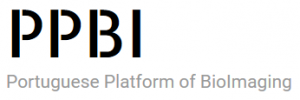FCUL Microscopy Facility (FCUL-MF) is a research and training infrastructure for microscopy and bioimaging. FCUL-MF is also a node of the Portuguese Platform for Bioimage.
FCUL-MF functions as a service provider and technical support hub on stereo, widefield fluorescence, confocal and electron microscopy as well as high throughput microscopy. It also supports its users in assay development, image analysis and quantification techniques.
FCUL-MF’s mission is to serve the research community in FCUL as well as to train FCUL’s student community. Hands-on courses in basic and advanced microscopy techniques and image analysis are held on a regular basis.
FCUL-MF also provides specialized services for researchers outside FCUL and welcomes visits by schools and other educational establishments.
The FCUL-MF is composed of two subunits, located at the FCUL Campus in Campo Grande (Lisbon):
- the C2 room (2.1.15), dedicated to morphological analysis using stereo, widefield, fluorescence, confocal and electron microscopy
- the C8 rooms (8.1.71 and 8.1.79), dedicated to high throughput screening microscopy using both widefield and confocal microscopy.
FCUL-MF provides technical support to its users through the work of two technicians (see PEOPLE). This technical support can be requested within the following working hours:
Telmo Nunes: Mon – Fri 9:00-17:00 (C2 room)
Luís Marques: Mon – Fri 9:00-17:00 (C2 and C8 rooms)
From the early electron microscopy centre (almost 50 years ago) to the first confocal microscope in the Iberian peninsula, FCUL has a long tradition in microscopy. Although mostly associated to life sciences, microscopy in FCUL is also a relevant technology for earth, physical and chemical sciences. When FCUL moved to the Campo Grande campus in 1987, technical requisites prevented the transfer of the electron microscope facility which remained in its original location. This led to the acquisition of a new scanning electron microscope (SEM) [through the Centre for Environmental Biology (CBA)] which triggered the aggregation of the broad repertoire of microscopes present in the two Departments of Biology (DBA/DBV) into a joint laboratory (room 2.1.15). This became a new microscopy facility (currently the C2 room of the FCUL-MF). In 2006, the capabilities of the FCUL-MF were significantly strengthened through the acquisition of a new Leica SPE confocal microscope (made possible through a substantial financial contribution by the Educational Service of Fundação Calouste Gulbenkian). Another major step was taken when BioFIG, a multidisciplinary centre including researchers from Biology, Biochemistry and Physics, acquired the first high throughput imaging system in Lisbon (currently in room 8.1.79 of the C8 building). In the 2014 FCT Evaluation cycle, both BioFIG and CBA expanded their scope and size and were renamed BioIsI and cE3c, respectively. Researchers from both centres formed the FCUL node of the Portuguese Platform of Bioimage (PPBI), funded by the FCT programme “Roteiro Nacional das Infraestruturas de Investigação de Interesse Estratégico”. As a consequence of this effort, and BioISI’s strategic project, the equipment in the C2 room was significantly upgraded and a new Leica SP8 microscope (with high throughput and FRET/FLIM capabilities) was acquired and placed in the C8 room. Today, the FCUL-MF provides a broad and comprehensive platform in state-of-the-art microscopy techniques, high throughput imaging pipelines and image analysis software and hardware. Moreover, its position as a PPBI node gives its users access to other complementary facilities in Portugal and, as of 2018, to the pan-European Euro-Bioimaging network of imaging infrastructure and training initiatives.





